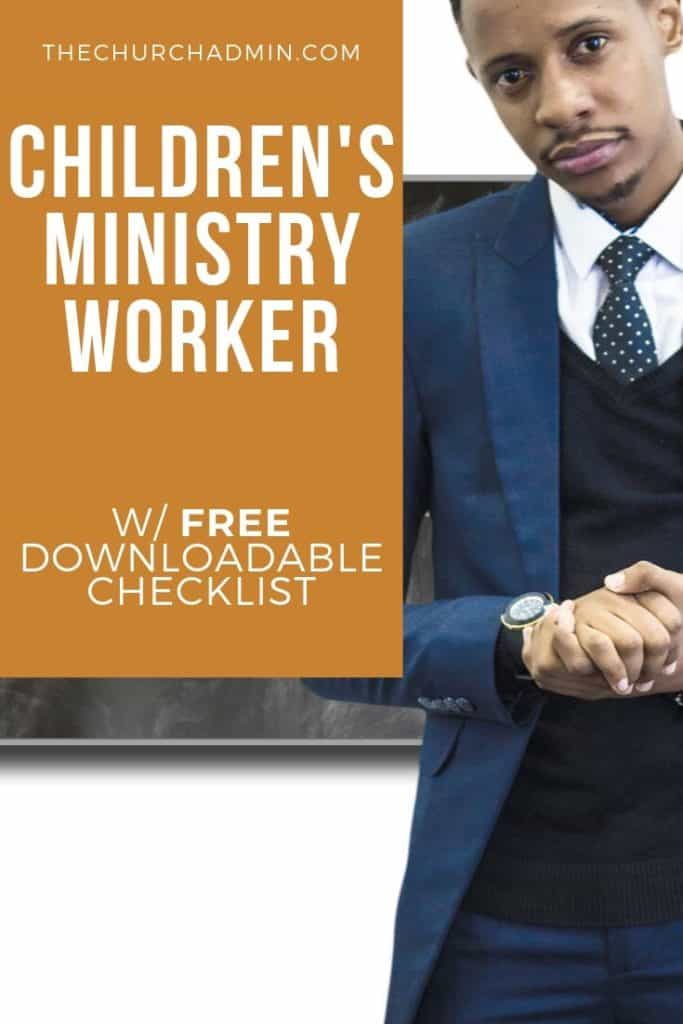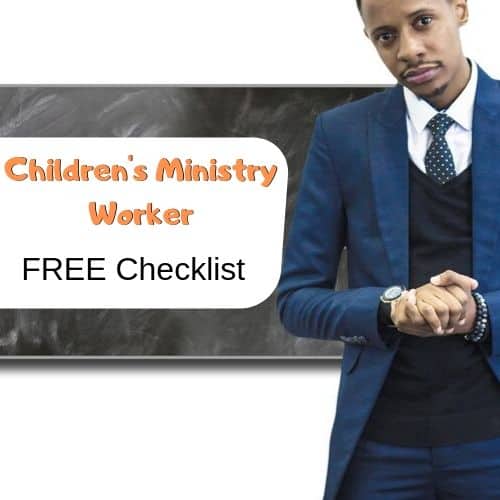
While revamping our children’s ministry after a remodel and restructuring, the question came up of who should be serving in the children’s ministry. After many elder board meetings, family interviews, and talking with church members, we came up with the following criteria:
- Pay
- Age
- Scheduling
- Training
What is the difference between worker and helper
The difference between a worker and a helper can vary wildly depending upon your church structure. Often a children’s ministry will have a set ratio or series of standards to help with the differentiation. The provided checklist can help to determine and assure proper orientation into whatever role would be the best for the prospective applicant.
One of the key factors to set a worker apart from a helper is formal training. This training should be in an applicable field, such as childhood education, medical specialties, or even just parenting a large family well. One of the most important factors to consider is the person themselves. Are they involved and engaged with the church, how do people talk about them, and why do they want to participate?
A worker or teacher is the head of a class or event, while the helpers serve in the capacity of a teaching assistant (TA). Usually, a worker or teacher is an adult who is established in the church and has served as a helper or assistant worker/teacher in the past. Whereas a helper is usually a teenager looking to help or achieve volunteer hours.
Do you need workers/ teachers if you have helpers
YES, you need a lead worker or teacher. A good rule of thumb is that all children’s ministry settings should have at least one trained worker or staff member. Depending upon the class specifics a series of helpers or fellow workers can successfully manage a ministry event or class. However, if helpers are left without worker oversight, the situation almost always deteriorates. Depending on the needs of the service this can work, but we try to emphasize teaching at every meeting instead of just a neverending fellowship festival, so we try to apply Proverbs 22:6, “Train up a child in the way he should go; even when he is old he will not depart from it.”
Should the position be paid or unpaid
This again varies from church to church, but generally, most of those serving in children’s ministry are unpaid. The exception to this is usually a Children’s Ministry Director or an Associate Pastor. A larger church will often employ teenagers, for minimum wage, to serve as babysitters during events or services, these teens however rarely “teach” much during their time with the kids.
Never forget that your children’s ministry staff are for the most part “volunteers”. So even if they aren’t being paid in currency, they must be compensated in courtesy. The simple act of a thank you or token of appreciation will go a long way to maintaining the morale of your troops.
Age considerations and legalities
Certain states or jurisdictions may have laws mandating a minimum age for “babysitting” or “temporary guardianship” of children. If this is the case then obviously abide by the law. However general common sense and judgment should let you know if the person in question is “mature enough”, as opposed to “old enough”, to run class.
At church we don’t have a hard age limit to teach a class, there isn’t the presidential minium in play for us. We take in the persona as a whole and see what they can do as a helper, before allowing them to take on a leadership role.
I taught my first EMT course as a 21-year-old, fresh-faced, newly minted paramedic. I had never taught, or lead a class in my career. My entire educational experience at the time was in random church volunteering. In my first class, my students ranged in age from 17 – 64 years old. I was about to teach someone older than my grandfather how to do something as important as saving lives. I was terrified of walking up to the podium the first time. The thing that helped to overcome the stress and anxiety… I was the teacher! My role was the empowering force to allow me to fake my confidence and fall back on my limited experience and years of study.
I bring this up to show the power of a title and the ability to instill confidence (even in the young and scared) via something as simple as a name on a whiteboard or nametag.
Scheduling availability
Availability and scheduling are the bane of most director’s tenure in the role. Before taking on a worker, assure that proper and consistent availability are discussed. Serving in the children’s ministry should not force other priorities to be way-laid. However, this service should be considered a legitimate priority.
The two-edged sword of college students is the, sometimes, random availability and time commitments.
History of punctuality
The worst thing is the no-call, no-show. Followed very closely by the no-call, just in time show up.
I can’t even begin to count the number of times I have had to scramble to get coverage for a children’s church class at the last minute, because there are kids sitting in an empty room… to come in a few minutes later with the “coverage teacher” to find the original starting the lesson with a fresh cup of Starbucks in hand.
Because of this and my desire to live a few more years without heart trouble, we have instituted a 15 minute prior to the start of class deadline. If the service or event starts at 9 am, everyone is together in the choir room before 845 am. This allows for last-minute updates and redistribution of workers as needed. In the case of tardiness to this meeting and prayer time, the tardy worker will move to a needed helper or float role for the day and someone else will take that class. This is not a punitive measure, everyone is on the same page and understand the logistical necessities.
General flexibility
I like to think of staffing a children’s church like a baseball team. Everyone has a specific role to play, but there are always the few “utility” players that can save you in a time of need.
I have many workers who can easily teach any/ all the grade levels. I also have some who are retired and can cover any shift needed.
Assure that new workers can have some flexibility in their schedule to allow for changes.
Sense of ownership/ stewardship
With any volunteer-based endeavor, creating a sense of buy-in is imperative.
As the Bible says in Colossians 3:23, “Whatever you do, work heartily, as for the Lord and not for men”.
Without being heavy-handed with your staff, remind them that they aren’t working for the church, they are working for God.
Formal training
Some basic things need to be instilled in every person in a leadership role in children’s ministry.
An easy way to remember them is the 4S’s – Safety, Security, Scrutiny, and Schooling. This will be covered in greater detail in our full children’s ministry organizational guide and in the checklist, but here are some applicable highlights:
1. Safety
Some of the basic requirements:
- CPR training (within 3 months of working)
- First-Aid training (within the first year)
- Fire safety procedures
2. Security
Some of the concerns are:
- Checking in/out procedures
- Contact numbers and protocols
- Meeting with security team
3. Scrutiny
This is to remain above all reproach
- No Cellphones in the class
- No photos without authorization
- Always 2 or more workers/helpers with the children
- Avoid diaper changes and bathroom “help” (entire post dedicated to this)
4. Schooling
The ability to teach
- Access to curriculum
- Solid understanding of the theology
- Ability to ask tough questions of the Elders or Pastor
- Formal education is a huge plus
In conclusion
These are just some ideas and considerations for you and your church when establishing your specific requirements for a children’s ministry worker or teacher.
FREE DOWNLOADS
Free Checklist and other children’s ministry documents can be found HERE or @ https://thechurchadmin.com/free-downloads/






